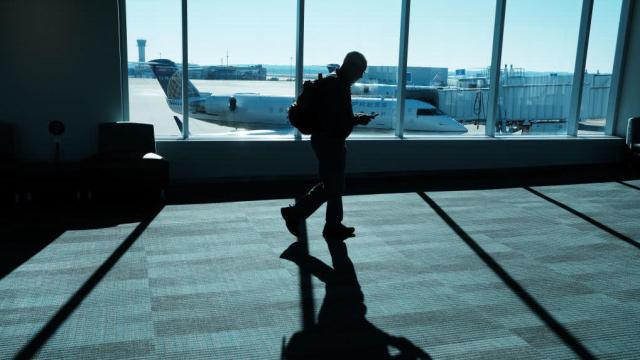The American Physical Society cancelled its annual March Meeting in Denver, Colorado, the country’s largest physics conference that draws over 10,000 annually, citing health and safety concerns due to the coronavirus outbreak.
The cancellation came less than two days before the conference’s scheduled start date of today, March 2, leaving participants to cancel travel plans last-minute and even leaving those who arrived early in Denver without a conference to attend. The APS cited the fact that many attendees would be visiting from outside the U.S., including from countries with the highest warning level for a travel health notice: China, Italy, South Korea, and Iran.
“We have been monitoring the spread of the disease leading up to the meeting and determined, in consultation with the APS Board Executive Committee as well as meeting leadership and APS staff input, that cancelling the meeting was necessary to avoid any transmission at our meeting,” said APS Chief Executive Officer Kate Kirby in a press release.
The meeting is among the most important of the year for physicists. Researchers use the gathering to share their latest results and network with peers. The APS announced the cancellation on Saturday night over social media, through an update to their web page, and in email to participants, followed by a press conference yesterday. Nature physics journalist Davide Castelvecchi, himself stranded in Denver, reported that the decision came specifically after the CDC upgraded Italy and South Korea to its highest warning level for travel.
Unfortunately, hundreds of physicists from around the world found out about the cancelation after arriving at their hotels on Saturday night or Sunday morning. Audun Skaugen, a postdoctoral researcher at Tampere University in Finland, told Gizmodo via Twitter that he had gone straight to sleep after checking into his hotel on Saturday, only to wake up to a cancelation email on Sunday morning. He’d planned to attend a pre-conference course on machine learning in statistical physics and was going to give a talk on his own research Friday.
“It was very disappointing to see the event was cancelled. I was really looking forward to many of the talks. It was also really annoying that it was such a last-minute decision,” he said.
Toma Susi, assistant professor at the Faculty of Physics of the University of Vienna in Austria who would have been attending the meeting for the first time, found out an hour after checking into his hotel on Saturday night. Both his flight ticket and hotel reservation had strict no-cancelation rules, and booking an earlier return flight was prohibitively expensive, so he chose to stay in Denver and work remotely for the week.
“The decision was probably the right one, but to me it is clear this should have been taken several days earlier,” he told Gizmodo via Twitter. “As far as I can tell, nothing substantively new came out in the last day or two before the cancellation. I would hope that APS will be transparent about the chain of reasoning that led to this very last-minute decision.”
The APS wrote in the press release that those who registered for the conference would receive a refund for their registration fees and that they are working with local hotels and U.S. government funding agencies to “help mitigate financial hardship to people who were planning to attend.”
With the conference cancelled and no online alternative, some physicists turned Twitter into a makeshift virtual conference, sharing videos and forums to the meeting’s hashtags and announcing plans to stream their presentations on schedule. The APS division of Soft Matter distributed a spreadsheet with many of its sessions and links to videoconferences. Though the APS urged conference attendees to return home, physicists report struggling to book return flights. Some are still trying to make use of their time in Denver.
“I came to the March Meeting to hear about new results and the new trends and topics researchers are excited about. I also had several meetings set up with current and [prospective] authors, and I was planning on some good networking with people in the communities working on the topics I handle. The in-person interaction at the March Meeting is invaluable for me,” Giulia Pacchioni, an editor of the Nature Reviews Materials scientific journal, told Gizmodo via Twitter. She now plans to visit labs in the area and network with some of the many stranded physicists.
“I’m sure opportunities can be created out of this situation,” Pacchioni said. “However, with more and more flights being cancelled, I’m a bit anxious about being able to go home without the trip becoming an Odyssey.”
